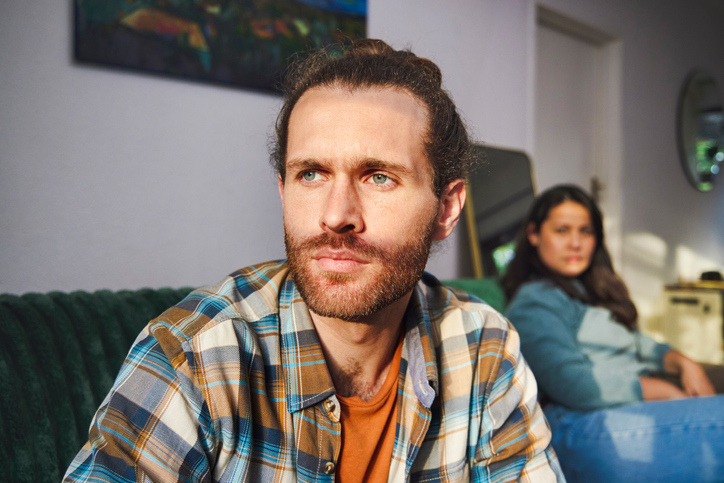Self-improvement is a journey filled with vision boards, self-help books, and an ever-growing collection of journals. If you’re reading this, chances are you’re one of us—the eternally unsatisfied, always striving for that next level of personal growth. While it can be incredibly rewarding, it comes with its own unique set of challenges. Here are 16 of them.
1. The Perpetual Feeling of Not Being “Enough”

You’ve read all the books, attended the seminars, and even started meditating daily. Yet, somehow, you still feel like you’re not quite there. This nagging sense of inadequacy is the constant companion of the self-improver. It’s the voice that whispers, “You could be doing more” even as you’re juggling a full-time job, a side hustle, and training for a marathon. Remember, growth is a journey, not a destination. It’s okay to acknowledge your progress while still striving for more.
2. Analysis Paralysis

Should you focus on your career, relationships, health, or spiritual growth? Maybe all of them at once? The self-improvement world is vast, and with so many areas to work on, it’s easy to become overwhelmed. You might find yourself stuck in a cycle of endlessly researching the “best” way to improve, rather than actually taking action. Pro tip: Pick one area to focus on at a time.
3. The Rollercoaster of Motivation

One day you’re on fire, ready to conquer the world. The next, you can barely muster the energy to get out of bed. This fluctuation in motivation is normal, but it can feel particularly frustrating when you’re trying to maintain a consistent self-improvement routine. Remember, discipline trumps motivation. Build habits that carry you through the low days.
4. Comparison-itis

You see someone posting about their latest achievement and suddenly your own progress feels insignificant. This constant comparison can be exhausting and demoralizing, according to Psychology Today. Everyone’s path is different, and those picture-perfect Instagram posts rarely show the whole story.
5. The Never-Ending To-Do List

Meditate, journal, exercise, read, practice gratitude, learn a new skill—the list of daily habits for optimal self-improvement seems to grow by the minute. Trying to fit it all in can feel like a Herculean task, especially when you’re also juggling work, relationships, and basic adulting. You don’t have to do it all, all the time. Okay?
6. The Impatience Itch

In a world of instant gratification, a slow pace can be frustrating. You might find yourself constantly looking for shortcuts or quick fixes, only to be reminded that true change takes time. Learning to cultivate patience and trust the process is one of the biggest challenges—and lessons—of the self-improvement journey.
7. The Overthinking Overdrive

It’s easy to overthink. You might find yourself constantly questioning your motives, analyzing your behaviors, and second-guessing your decisions. While self-reflection is valuable, there’s a fine line between helpful introspection and paralyzing overthinking.
8. The Impostor Syndrome Intensifier

As you learn and grow, you might find yourself in new situations that trigger impostor syndrome. The more you achieve, the more you might feel like a fraud waiting to be exposed. This is especially common if you start sharing your journey or teaching others. This just means you’re pushing yourself to new levels—it’s a sign of growth, not inadequacy.
9. The Struggle to Celebrate Small Wins

When you’re always focused on the next goal, you can overlook the progress you’ve already made. You might find yourself achieving something you once dreamed of, only to immediately shift focus to the next big thing without taking time to appreciate your accomplishment. Learning to acknowledge and celebrate small victories is crucial for maintaining motivation and avoiding burnout.
10. The Self-Improvement Spending Spiral

From books and courses to apps and retreats, the self-help industry offers endless ways to invest in yourself—and endless ways to drain your bank account. You think that the next program or tool will be the key to unlocking your full potential. While investing in yourself is important, you have to be able to discern between what’s valuable and what’s just a shiny object.
11. The Perfectionism Paradox

Many self-improvers are recovering (or not-so-recovering) perfectionists. But here’s the thing: the desire to do everything “right” can actually hinder progress. You might find yourself procrastinating on starting new habits or projects because the conditions aren’t perfect, or beating yourself up over minor slip-ups.
12. The Identity Crisis

As you grow and change, you might find yourself questioning who you really are. The version of you from a year ago might feel like a stranger. While this evolution is a sign of progress, it can also be disorienting. You might struggle with letting go of old habits or relationships that no longer serve your new self. Identity is fluid, and it’s okay to outgrow your old self.
13. The Boundary Blur

In your quest for self-improvement, you might find the lines between work, personal development, and leisure becoming increasingly blurred. When every free moment is an opportunity for growth, it can be hard to truly relax without feeling guilty. Learning to set boundaries and give yourself permission to simply be, without always doing, is so important.
14. The Enlightenment Expectation

After consuming so much wisdom from books, podcasts, and gurus, you might expect to feel consistently enlightened and zen. But then you find yourself losing your cool in traffic or feeling envious of a friend’s success, and the disappointment sets in. It’s important to remember that personal growth isn’t about reaching a state of perpetual bliss, it’s about developing the tools to navigate life’s ups and downs with greater ease and awareness.
15. The Vulnerability Hangover

Personal growth often involves stepping out of your comfort zone and being vulnerable. While this can lead to great breakthroughs, it can also leave you feeling exposed and uncomfortable. You might share a personal story in a group setting or try a new behavior, only to be hit with a wave of regret or anxiety afterward. This “vulnerability hangover” is normal and often a sign that you’re healthily pushing your boundaries. (And if you need some help soothing this hangover, here are some ways according to Wondermind.)
16. The Happiness Guilt

Paradoxically, as you become more self-aware and grateful, you might also feel guilty about your own happiness or success. You might find yourself downplaying your achievements or feeling bad about being happy when others are struggling. But your growth and happiness don’t diminish anyone else’s—in fact, they often put you in a better position to help and inspire others.









